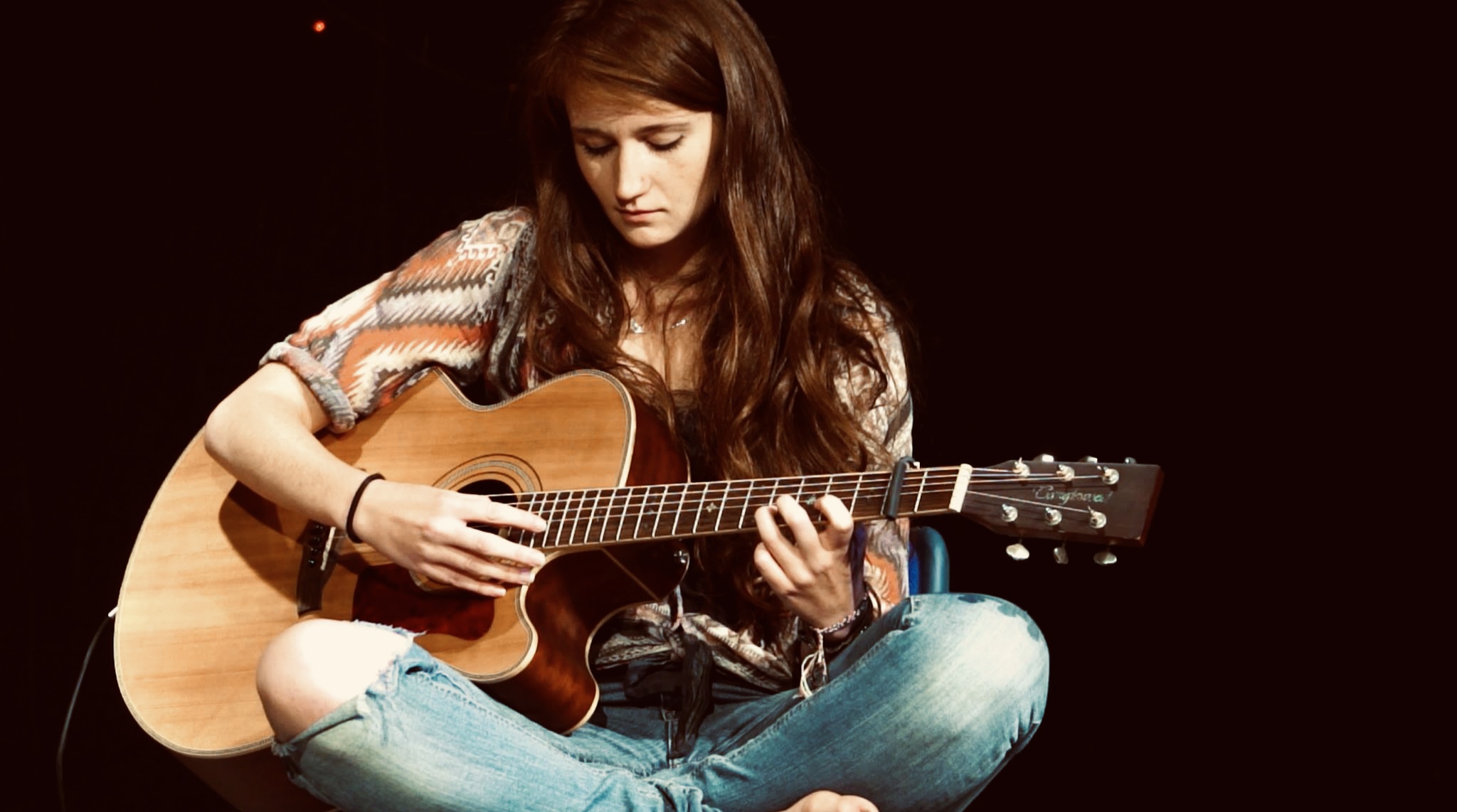Robin Trower interview: "I think you have to up your game every time"
A blues rock icon on why he decided to upgrade his new album and the secrets of his guitar tone
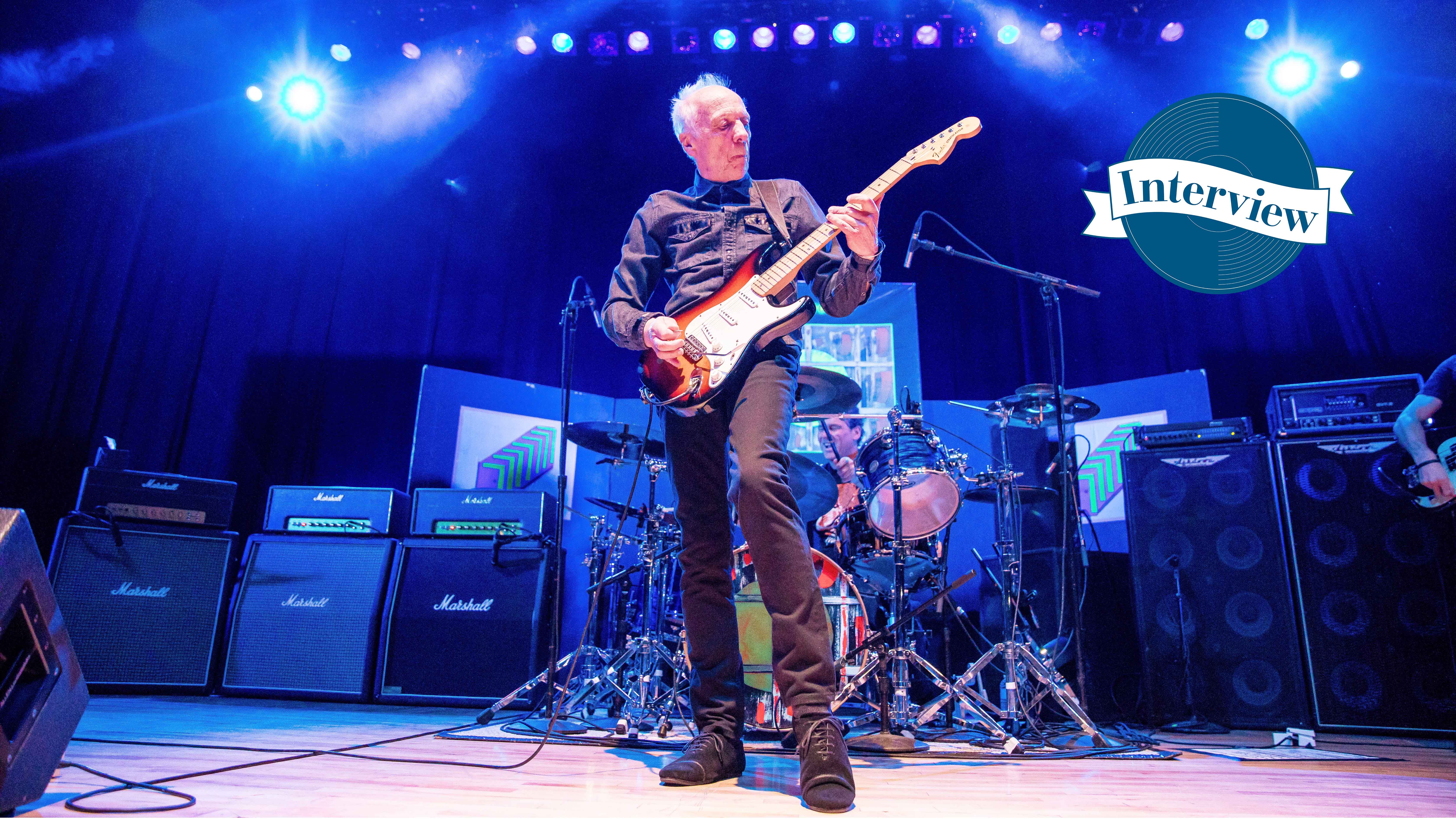
In many ways, the title of Robin Trower’s latest record, No More Worlds to Conquer, is a fair summary of what he has achieved over the course of his six decade long career. He, of course, rose to fame as a guitarist with Procol Harum, before going on to sell out stadiums under his own steam following the release of his monster 1974 solo hit, Bridge Of Sighs.
He’s long since shaken-off any critics that had him pinned as nothing more than a Hendrix copycat, and his prolific ability to create seemingly limitless volumes of new material has seen him release well over 20 solo albums to date - as well as numerous collaborations with the likes of Jack Bruce, Brian Ferry, and more recently, Maxi Priest and Livingstone Brown on 2020’s United State of Mind.
Musically, there may seem to be few stones left unturned, but interpreting No More Worlds to Conquer as a complacent “been there, done that” reflection on sixty years of making music would be somewhat missing the point.
In fact, this latest offering, which was released on Friday 29 April 2022 via Provogue, emphatically reaffirms Trower’s capacity for growth. The record delivers an expertly paced journey through different moods with more vitality than many players half his age or less can muster, and - armed with his trusty toolkit of signature Fender Stratocasters, Marshall amps and Fulltone effects - Trower’s playing sounds as vibrant as it ever has.
The sound of hot valves, overdrive and a liberal dose of the wah wah pedal powers tracks like Razor’s Edge, and the album opener Ball Of Fire proves to be aptly named. Elsewhere, on songs like I Will Always be Your Shelter and Waiting For The Rain To Fall, warm lyrical sentiments (which are performed by Richard Watts, rather than Trower himself) are matched with warm, honeyed guitar tones and characteristic washes of psychedelic modulated effects.
The key, as Robin reminds us, is that he still plays for the sheer joy of it, and many of these new songs, he says, were simply born out of “messing around and playing for fun”.
Here, the Strat-wielding blues rock legend discusses his latest studio effort, offers up a ‘how-to’ guide for recreating his enviably rich guitar tone, and talks us through the players that have been inspiring him for over half a century and counting.
Want all the hottest music and gear news, reviews, deals, features and more, direct to your inbox? Sign up here.
On the face of it, the album title No More Worlds To Conquer seems like quite a statement. Could you tell us a little bit about that?
"Well, the title track of the album is really about Alexander the Great, but I just thought it was a nice sort of overview for the whole album. I’m kind of at the stage where I’ve got nothing to prove, no more worlds to conquer, but I’m still forging ahead as it were!"
Even though you’ve made a lot of albums, and you’ve covered a lot of musical ground, do you still consider yourself to be evolving as a guitarist?
"Yes, I do. In the last ten or fifteen years, I’ve worked a lot harder on trying to develop what creativity I do have. So I’ve put a lot more time into it - not only the guitar playing but also the song writing, arrangements and lyrics. I’ve spent a lot more time at it. I used to be a bit more flippant about it when I was younger.
This album was made partly before the pandemic, and partly during it. Did you find lockdown to be a creative time, or perhaps a rare time of reflection?
"Well, the thing is, it was a once in a lifetime chance, really, because what I had was an album that was finished, and it got shelved because of the pandemic. Usually, we like to tour when there’s an album coming out, but it got put on the shelf.
"Then, after about a year, I listened to it again, and by that time, I’d written so many new songs I was excited about that I wanted to drop some from the first version and put in some new songs. Also, I got Richard [Watts] to sing some of the old songs again, I changed some melodies on some of the earlier songs, and there were four new songs I had actually written for him anyway - so he obviously fitted those perfectly. I also did a lot of lead work again, so it’s quite an upgrade altogether!"
You’ve spoken frequently in the past about your ability to write a lot of music. Where does that inspiration come from?
"Well, who knows where creativity comes from! I think maybe it’s something you’re born with, you know? I’ve been very fortunate to be able to continue turning out new material because that’s really the only thing that can keep me moving forward.
"It’s all very well practising and practising as a guitar player, but I think having new music to play solos and lead work on is challenging. Every new song is a bit of a challenge and I think you have to up your game every time."
Do you find you have to be at all disciplined in allocating time to sit down and write?
"I think it comes naturally. I like to play the guitar every day because, you know, that’s my main joy in life, really. As I’m sort of messing around and playing for fun, ideas just come. It’s always the guitar part that starts the song off, and if I think the guitar idea is strong enough to turn into a song, I work on that.
"Then, when I’m happy with the arrangement of that, I start working on the vocal topline. Usually, I can get that stowed away in three or four hours, and then I’ll go on to the lyrics, and that’s what really takes the time. I can spend about three days on the lyrics. That’s what takes the most time with new material definitely for me.
"Then after that, I’ll start thinking about the arrangement. I’ll start thinking about the bass part, the drum part, you know, and continually keep looking at the song itself to see what else I can come up with for it."
Did you handle bass guitar duties on this album as well as all the other guitars?
"Yeah, I played bass on all but three. Livingstone Brown plays bass on those three."
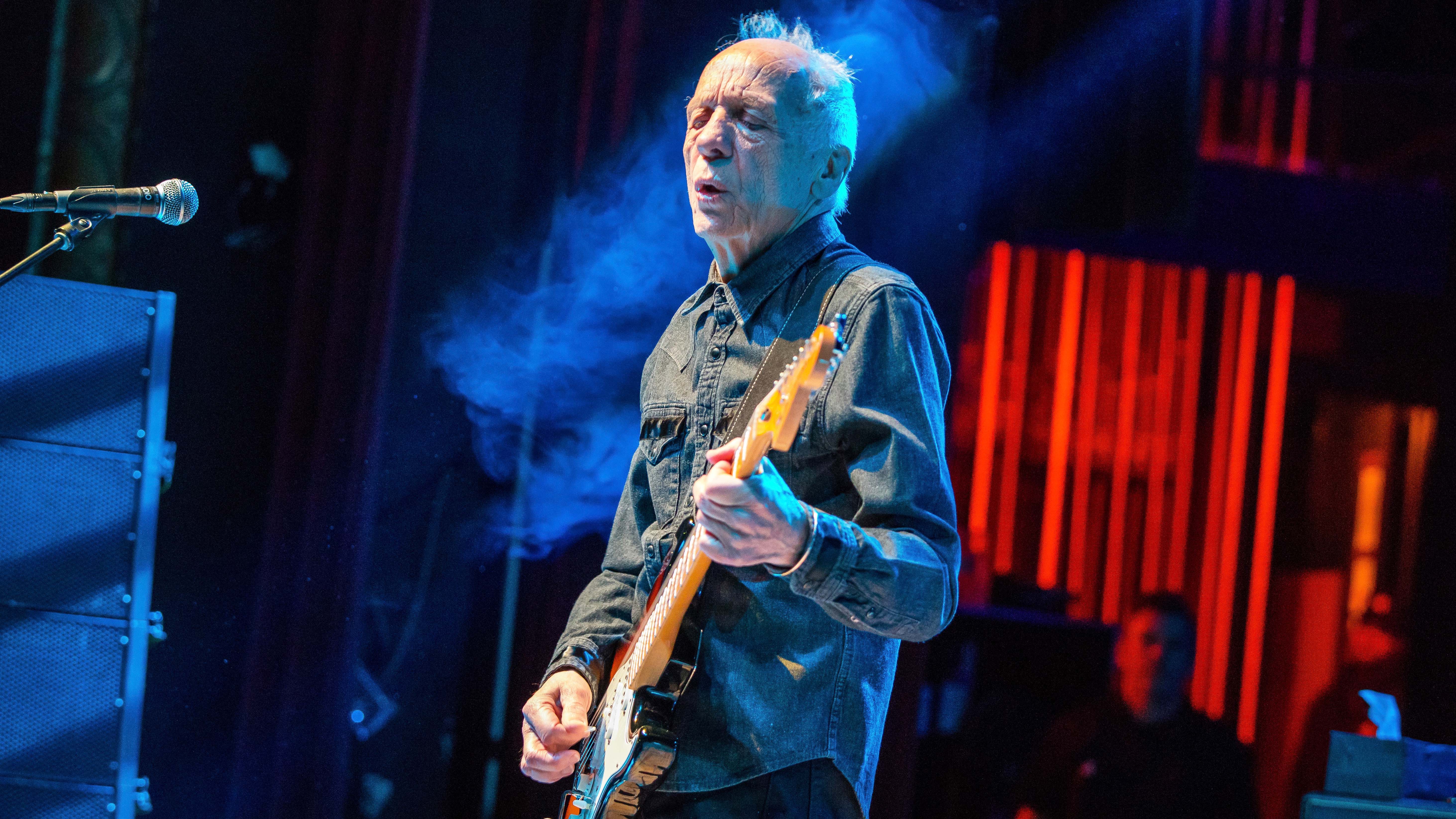
Your taste in guitars hasn’t changed all that much over the years, and you used your trusty Strat and Marshall combination again for this record. Are you able to distil what it is that you love so much about them?
"The Strat has what I would call a human voice quality to it that I think I respond to when I’m playing it. So, in a way, it acts as my voice. You can distort the hell out of it and it’s still quite a musical sound - it’s unique in that way. The Marshall I like because it’s got what I call a big sound to it, you know? You can get quite a big tone in a Marshall. I’m not saying you can’t get it from other amps, but that’s why I use a Marshall and have always used it.
"But for a lot of the songs, it’s also the effects I use as well. All my effects are made by Fulltone in California, so they’re a big part of it as well."
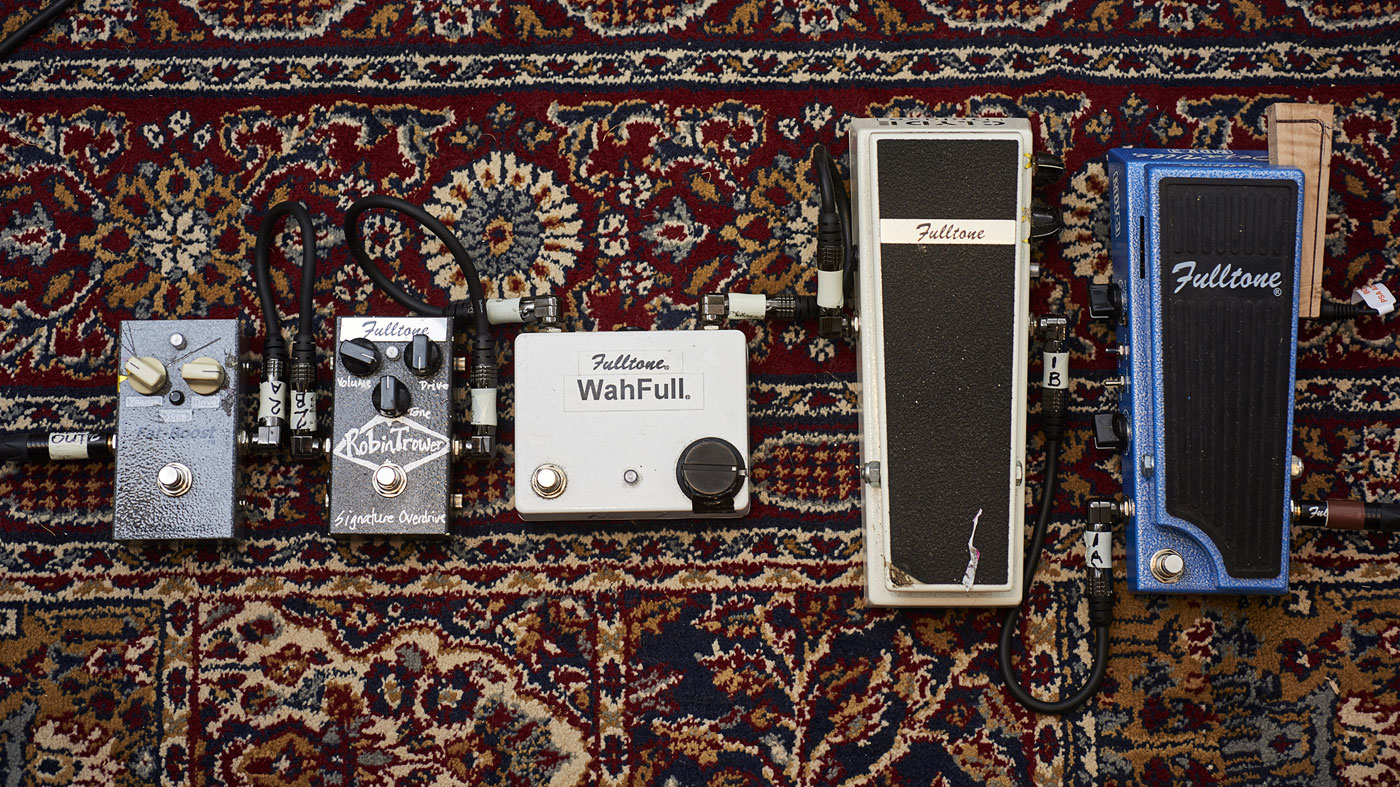
What are some of the effects you’re enjoying using most right now?
"I use my signature model overdrive. I use a Fulldrive sometimes. In recent months I’ve been using a thing called a Secret Freq - short for ‘frequency’ - and I used the Fulltone Wah Wah as well as a thing called a Deja Vibe. Those are the main tools of my trade.
"I’m always fiddling, and always trying different combinations of effects pedals. I usually use two different types of Marshalls together to get a blend - like a 20 Watt, a 50 Watt, a 100 Watt - I usually blend two of those together for different sounds, and I’m always playing around with it, but the basic idea is always the same."
If you can get a good sound out of a guitar acoustically, you will get a good sound out of it through an amp
There are a lot of us out here with Strats and Marshalls, but your tone is instantly recognisable and it’s the envy of a lot of people. Would you be able to go a little deeper into some of the settings you like to use to get that signature sound?
"The secret of my tone! Well, I mean, it’s pretty straight-forward. The Strats I use are specifically made for me by the Custom Shop at Fender, and they’re my signature model so they have specific pickups on them. I use quite a high action so that I can use thicker strings on the top two and get a fatter sound, basically. I also tune down a whole step - I’m tuned down to D - so that I can bend and vibrato those heavier strings.
"Nearly all the time, I’m on the neck pickup, and that neck pickup is what they call a ‘50s Vintage Reissue, so it’s an imitation of the Strat pickup they made in the 1950s, which is a very clean sounding pickup. I think those are the main ingredients as far as the guitar goes!
"I think a couple of other ingredients are; on the neck, I had them put what they call jumbo frets on, and also, I decided to have the larger headstock because I thought a bit more wood on the neck would give me a bit more resonance. All these things I think add up to the sound I get out of it. To me, the acoustic sound of the guitar is where it starts. If you can get a good sound out of it acoustically, you will get a good sound out of it through an amp."
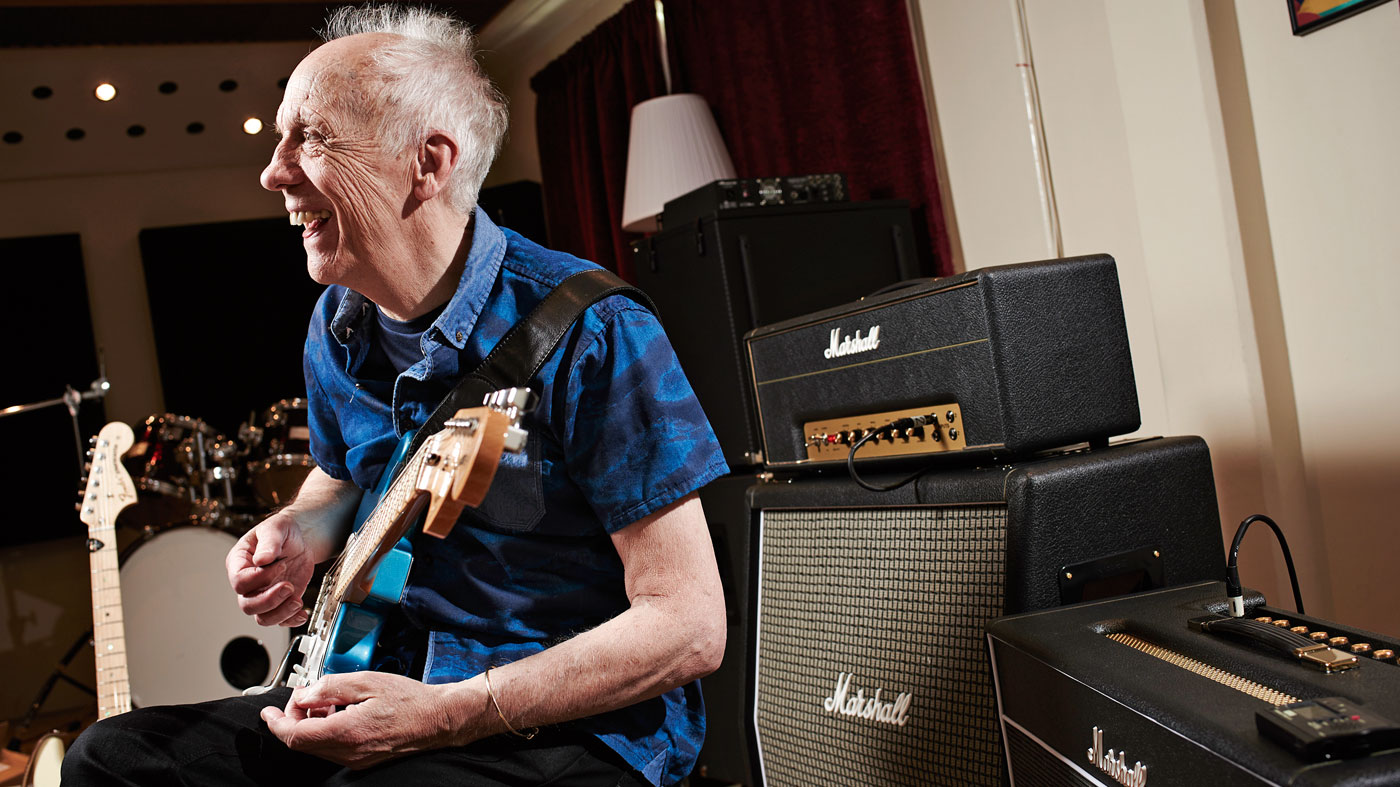
I always have an idea of the kind of things that will work because, when I’m writing and working on the song, I’m also sort of trying things out as the lead player
Were the specifics of your signature model - like the pickup configuration - things you’d worked through self-experimentation before even going into the Fender workshop?
"Well, there’s a guy there called Todd Krause. It was his idea that Fender make me a signature model, and I got together with him and we went through all the options. He would just say to me, ‘What would you like? What pickups? What kind of neck?’ We went through the whole thing and he put together the first one, and obviously it was a successful combination! So, that initial one was the beginning and nothing really changed after that first one he built."
It’s always a good sign when an artist actually plays their signature model…
"They’re the only guitar I play! I’ve got a few of them and they’ve all got their own character. Every one of them’s different, but there’s a couple of favourites that I really like to play most of the time. I’ve got one I call Mr Cream, which is one of the early ones, and it’s got quite a warm tone to it, and I think it’s probably because of the wood of the body. I think that’s probably why it has got that warm tone. There are others I like as well. There’s a Midnight Wine one that’s got a real bite to it. I’ll use that sometimes for lead work.
You mentioned earlier that you find the Strat has a human voice-like quality to it, and your lead playing is also quite vocal in its expressiveness. For you, what do you think makes a good guitar solo, or a good approach to lead playing?
"I think, obviously, you want something to have some fire to it, but I think, melodically, it’s got to make sense to the piece of music you’re playing on. As I’m writing a new song, I’m also thinking about the kind of things, in terms of lead work, that would work nicely for it. For some things, I actually do work out a complete solo as a melody. There’s a song on this album - ‘Wither on the Vine’ - where the middle solo is a completely worked out piece. Mostly, it’s the slower songs that I’ll work out more of a melody for the lead work, but I always have an idea of the kind of things that will work because, as I say, when I’m writing and working on the song, I’m also sort of trying things out as the lead player.
I like the beautiful and I also like the raw and wild stuff as well
If you had to pick one guitar moment on the new record as the performance you’re most proud of, what would it be and why?
"I get very moved by the song Birdsong. Towards the end, a theme played on the guitar starts, which obviously is a written part, but I really, really respond to that. There’s something about it that gets me. Also, The Razor’s Edge - I really like the lead playing on that. I think that’s got some really freeform, kind of wild stuff that I really like."
Those examples are almost two opposite sides to your guitar playing personality…
"Yeah! I mean, I like the beautiful and I also like the raw and wild stuff as well."
When I picked up the guitar – and it seems like a strange thing to say – but I just seemed to know how to play
In terms of musical inspiration, are you still listening to the same artists that first inspired you to pick up a guitar, or are there any newcomers to the scene that you’re particularly enjoying?
"No, I still am fascinated, particularly by Albert King. He’s my favourite guitar player of all time, and, I must say, the best guitar player I’ve ever seen live as well! Howlin’ Wolf is the other stuff that I still refer back to because there’s such a mystique about it, and you just wonder: how is that being done? Why is that so great? You can’t work it out because the ingredients seem so simple.
"Those are the sort of things that are still fascinating to me today. Like I say, Albert King’s lead playing is just amazing. Both of them are so completely unique, and that’s what’s so annoying about it - you can’t quite get your head round how they do it!"
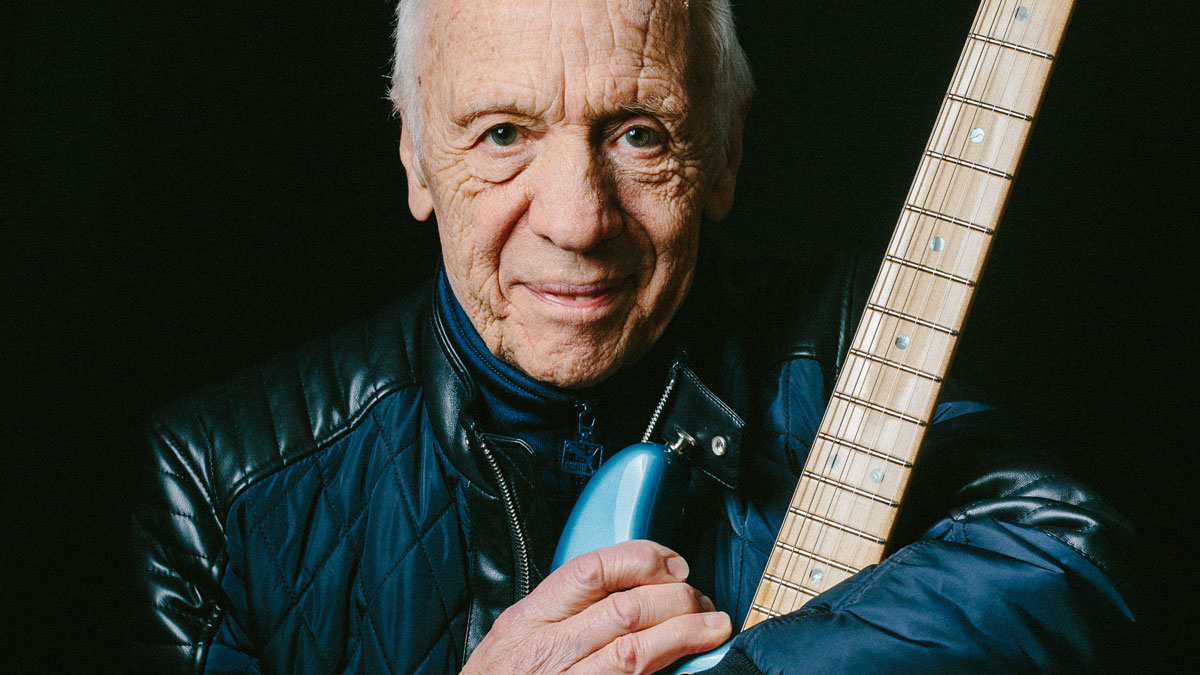
When you were learning to play, did you teach yourself by just listening to all these guys, or did you have a musical education in the more traditional sense?
"No, I had no musical education, but it was just one of those things. When I picked up the guitar – and it seems like a strange thing to say – but I just seemed to know how to play. It was something that came very naturally. Although I had these mentors of BB King, Albert King and Jimi Hendrix, I was very, very careful not to ever sit down and try and work out how to play any of their licks at all.
"I always thought to myself that I wanted to find and bring out what’s within me. But what was fascinating about those three players was thinking about what the emotion was behind the notes that made them play that. That’s more of what the interest was, I think.
"You can learn a lot without actually copying, you know? Obviously, you want to listen to the very best if you want to learn off of other guitar players."
Like most musicians, you’ve had a lengthy hiatus from playing live. Do you think you’ll finally be able to get back on the road with No More Worlds to Conquer?
"No, I can’t see it happening at the moment. It’s still just a little bit too dangerous out there. You can still catch it and you can still get quite sick from it, so it’s a matter of waiting to see. I’d love to get out there and play. I really do miss it. Maybe next year. I don’t know.
Knowing you, you’ll probably have another new album by then, won’t you?
"Well! I’m halfway through a new album at the moment. I’ve recorded six tracks already, and I hope to have it finished by the end of the year. I’m not in the studio all the time because it’s kind of difficult, even then, just to go into the studio and work with other people. It creates other problems, but I’m determined to get it done by the end of the year!"
No More Worlds To Conquer is out now via Provogue. More info.
5 guitar tricks you can learn from Robin Trower
Ellie started dabbling with guitars around the age of seven, then started writing about them roughly two decades later. She has a particular fascination with alternate tunings, is forever hunting for the perfect slide for the smaller-handed guitarist, and derives a sadistic pleasure from bothering her drummer mates with a preference for “f**king wonky” time signatures.
As well as freelancing for MusicRadar, Total Guitar and GuitarWorld.com, she’s an events marketing pro and one of the Directors of a community-owned venue in Bath, UK.
